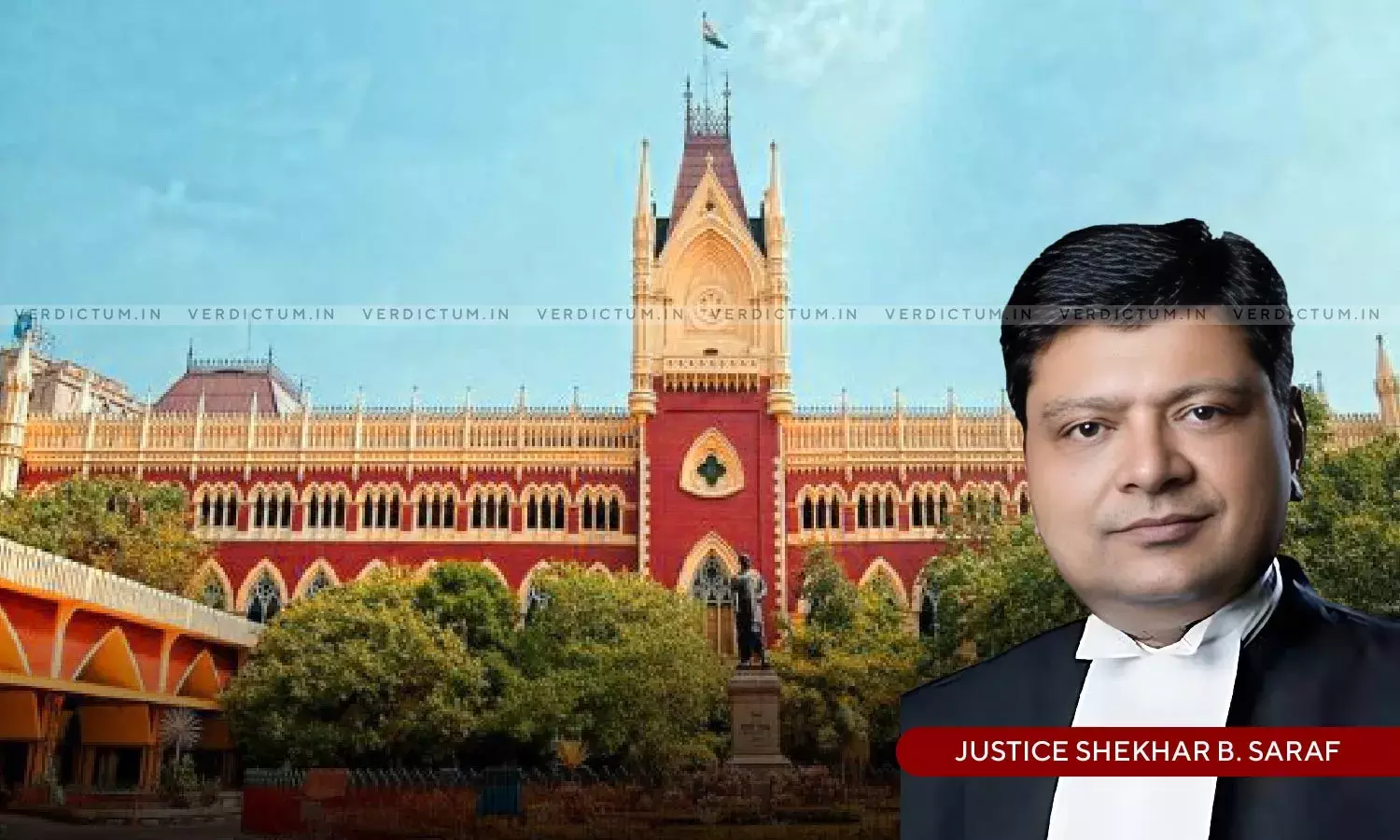'India In Dire Need Of Arbitration Reform; Burdened By Judicial Interference At Every Stage' - Calcutta HC While Upholding Rs. 1354 Crore Award In Favour Of Reliance Infrastructure

A Calcutta High Court Bench of Justice Shekhar B Saraf has upheld an arbitral award of Rs. 1354 crores passed in favour of Reliance Infrastructure Limited. The award stemmed from RIL's deal with Damodar Valley Corporation for constructing a thermal power plant.
The Court also stressed that the Indian arbitration system required reform due to the increasing judicial interference at every stage of the process. In that context, the Court said, "presently, it seems that arbitration process in India itself is finding it hard to bear the weight of the increasing judicial interference at every stage of the process. This not only impacts the viability of arbitration as a dispute resolution mechanism, but further demotes India’s standing as a businessfriendly destination in a globalised world".
Senior Advocate Ratnanko Banerjee appeared for the petitioner while Senior Advocate Harish Salve, Senior Advocate JJ Bhatt and Senior Advocate Tilak Bose appeared for the respondent.
In this case, Damodar Valley Corporation (DVC) appealed against an arbitral award issued in 2019, which required them to pay ₹1354 crores to Reliance Industries Limited (RIL). DVC had invited tenders in 2007 for the construction of two thermal power plant units in Raghunathpur, Purulia. RIL won the bid, and contracts were signed for the project, with specific completion dates.
However, the project faced delays, and RIL requested time extensions, which DVC granted without waiving their rights under the contracts. DVC issued partial Completion of Facilities Certificates for the units but noted defective work and unfinished tasks. In contrast, RIL claimed the project was complete and sought payment of outstanding amounts and the return of their bank guarantees. DVC, on the other hand, sought damages for the 468-day delay in completing Unit II.
Amid these disputes, RIL initiated arbitration proceedings against DVC, initially claiming ₹1453 crores but later not pursuing ₹190 crores. A panel of three arbitrators, including retired judges, ruled in favor of RIL, instructing DVC to pay ₹1354 crores and provide a ₹354 crore bank guarantee.
DVC decided to challenge this award, filing a Section 34 application under the Arbitration and Conciliation Act, 1996. The application began in March 2020 but faced delays due to the COVID-19 pandemic. It resumed in August 2022 following Supreme Court orders.
The High Court observed that while deciding on a challenge to an arbitral award under Section 34 of the Arbitration Act of 1996, a Court can take into account all documents, submissions and evidence presented before the arbitral tribunal, even if they are not expressly mentioned in the arbitral award.
The Court also noted that both the substantive law and the jurisprudence on interference with arbitral awards have undergone substantial change. In that context, the Court observed that, "The law as it exists today permits the Courts to go beyond the mere text of the arbitral award. While it cannot be denied that even today, no additional evidence or document which was never a part of the record of arbitral proceedings can be ordinarily taken into account by the Courts, nevertheless, Courts are well within their powers under the Act to consider the entire record of arbitral proceedings, and can take into account even those documents which although may not find an explicit mention in the award, but were a part of the record of arbitral proceedings."
Further, it was observed that to say that the Courts under Section 34 can only look at the award and a document incorporated within the award is a fallacious reading of the law. In that vein, it was said that, "In my view, even if a document has not been incorporated or referred to in the award, but was a part of the record of arbitral proceedings, and was within the knowledge of the arbitral tribunal, the same can be taken into account by the Court while adjudicating a challenge under Section 34. If an arbitral award has been rendered on a completely perverse interpretation of evidence presented before it, or vital evidence has not been paid heed to, then such an award would not be able to pass muster under Section 34."
The Court also took the considered view that the practice of partly upholding arbitral awards should be encouraged rather than setting aside an entire award because of a few invalid portions. In that context, it was said that, "If the issues in which the decision of the arbitral tribunal cannot be sustained are distinct and severable from the rest of the issues, then it would be prudent and encouraged to partly set aside the award. Such partial setting aside of an arbitral award would not amount to modification of the arbitral award, something which the Courts are not permitted to do under Section 34 of the Act."
Accordingly, the petition was disposed of. No orders were passed as to costs.
Cause Title: Damodar Valley Corporation vs Reliance Infrastructure Limited
Click here to read/download the Judgment

